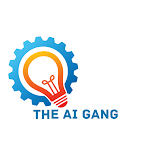Artificial Intelligence (AI) is transforming the healthcare industry by enhancing diagnostics, personalizing treatment plans, enhancing drug development, improving patient outcomes, and increasing efficiency and cost savings. In this post, we'll dive into each of these 5 key benefits and explore how AI technology is revolutionizing healthcare for the better.
Improved Diagnostics
Traditional diagnostics can often be time-consuming, inaccurate, and costly. AI technology is changing this by improving the speed and accuracy of diagnosis, ultimately leading to better patient outcomes. AI algorithms can analyze vast amounts of data, from patient history to medical imaging, to quickly and accurately diagnose illnesses. AI algorithms can learn from the data they analyze and improve their accuracy over time, making them even more effective in detecting diseases.
One example of AI-powered diagnostics is skin cancer detection. In a study published in Nature, researchers developed an AI algorithm that can detect skin cancer with an accuracy similar to that of board-certified dermatologists. The AI algorithm was trained on a dataset of over 130,000 images of skin lesions and was able to correctly identify 95% of malignant melanomas. This technology has the potential to improve the speed and accuracy of skin cancer detection, ultimately leading to earlier treatment and better patient outcomes.
Personalized Treatment Plans
Traditional treatment plans are often based on generalized knowledge of illnesses and patient groups, which can lead to one-size-fits-all solutions that may not work for all patients. AI is changing this by creating personalized treatment plans based on individual patient data. AI algorithms analyze patient data, including medical history, genetics, and lifestyle factors, to create customized treatment plans that are tailored to each patient's unique needs. This technology is leading to better patient outcomes, as patients receive personalized care that targets their specific health needs.
One example of personalized treatment plans is the use of AI in cancer treatment. Researchers have developed an AI-powered tool called the Watson for Oncology that can help oncologists create personalized treatment plans for cancer patients. The tool analyzes patient data, including medical history and genetic data, and recommends treatment options based on the latest medical literature and expert opinions. This technology has the potential to improve cancer treatment outcomes and reduce the burden on oncologists.
Enhanced Drug Development
The traditional drug development process is time-consuming, costly, and often produces drugs that are not effective for all patients. AI is changing this by enhancing drug development through machine learning and data analysis. AI algorithms can analyze vast amounts of data, including drug interactions, gene expression, and patient outcomes, to identify potential drug targets and optimize drug development. This technology is leading to more effective drugs that are personalized to individual patients, ultimately improving patient outcomes and quality of life.
One example of AI-powered drug development is the use of AI in Alzheimer's disease research. Researchers have developed an AI algorithm that can analyze brain scans and predict which patients are likely to develop Alzheimer's disease within the next five years. This technology has the potential to help researchers identify new drug targets and develop personalized treatments for Alzheimer's patients.
Improved Patient Outcomes
AI technology is improving patient outcomes by identifying health risks and predicting disease progression. AI-powered algorithms can analyze patient data to identify patients who are at risk of developing certain illnesses, allowing for early intervention and treatment. For example, AI algorithms have been shown to predict heart attacks and strokes before they occur, allowing for preventative measures to be taken. This technology is leading to better patient outcomes and overall health.
One example of AI-powered disease prediction is the use of AI in diabetic retinopathy screening. Diabetic retinopathy is a common complication of diabetes that can lead to blindness if left untreated. Researchers have developed an AI-powered algorithm that can analyze retinal images and predict the risk of developing diabetic retinopathy. This technology has the potential to improve early detection and treatment of the disease, ultimately leading to better patient outcomes.
Increased Efficiency and Cost Savings
AI technology is also increasing efficiency and cost savings in healthcare. AI-powered algorithms can automate tasks that were previously done manually, freeing up healthcare professionals to focus on patient care. This technology is also reducing costs by identifying areas where resources can be better allocated and by reducing the need for unnecessary tests and treatments.
One example of AI-powered efficiency and cost savings is the use of chatbots in healthcare. Chatbots are AI-powered programs that can communicate with patients and answer their questions. This technology is reducing the burden on healthcare professionals by providing patients with quick and accurate information. Additionally, chatbots can screen patients and determine if they need to see a doctor, reducing the number of unnecessary doctor visits and tests.
In conclusion, AI technology is revolutionizing healthcare in many ways, from improving diagnostics and personalizing treatment plans to enhancing drug development, improving patient outcomes, and increasing efficiency and cost savings. While there are still challenges to overcome, such as data privacy concerns and the need for continued research and development, the potential benefits of AI in healthcare are immense. By embracing AI technology, we can improve the quality of care and ultimately improve the lives of patients around the world.
References:
"How artificial intelligence is transforming the world of healthcare":
"Artificial intelligence and healthcare":
"AI in healthcare: A review of the use of artificial intelligence in healthcare and medicine":
"The potential of artificial intelligence in healthcare":
"AI in healthcare: Benefits, challenges, and future prospects":
"Artificial intelligence in healthcare: Past, present, and future":
"The future of artificial intelligence in healthcare":

